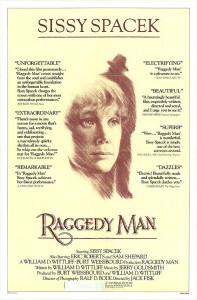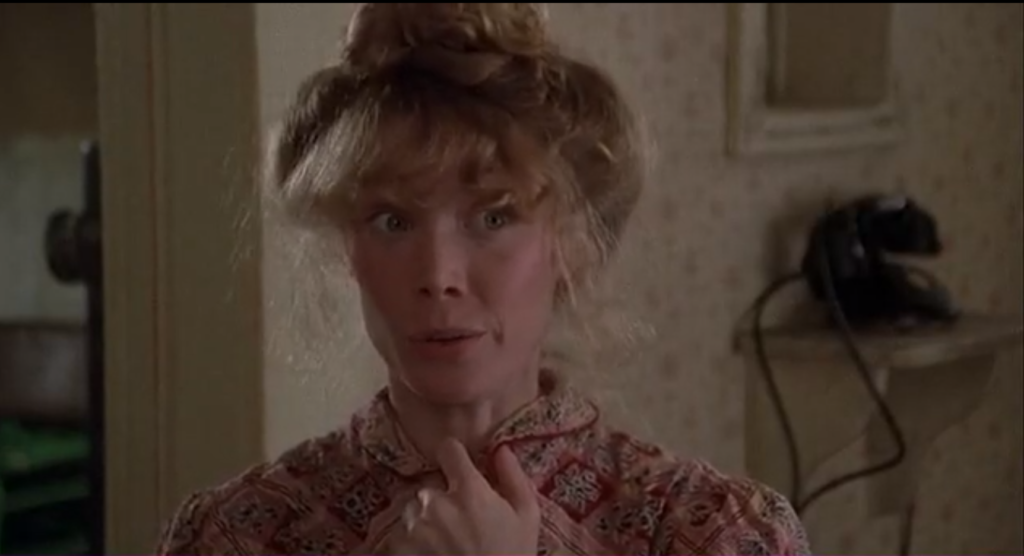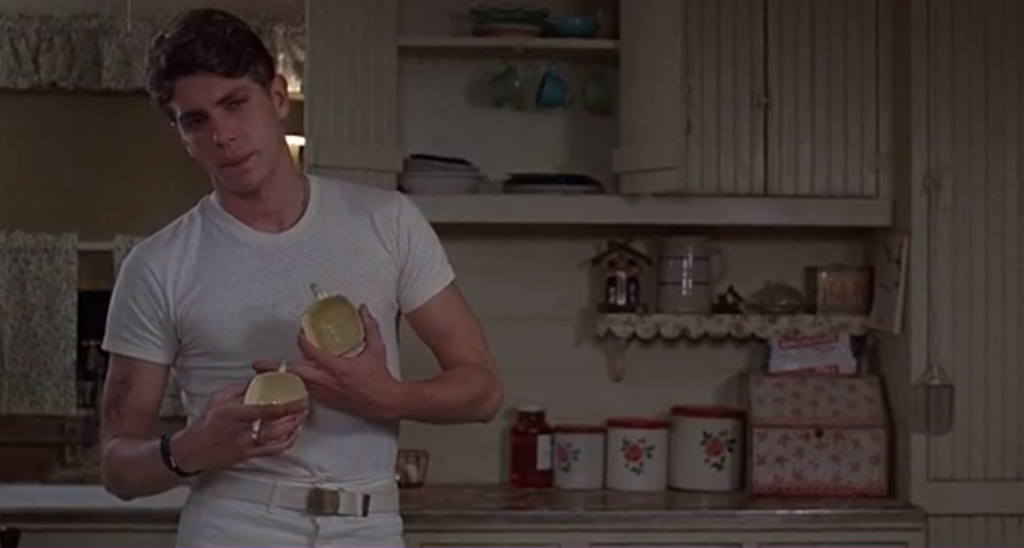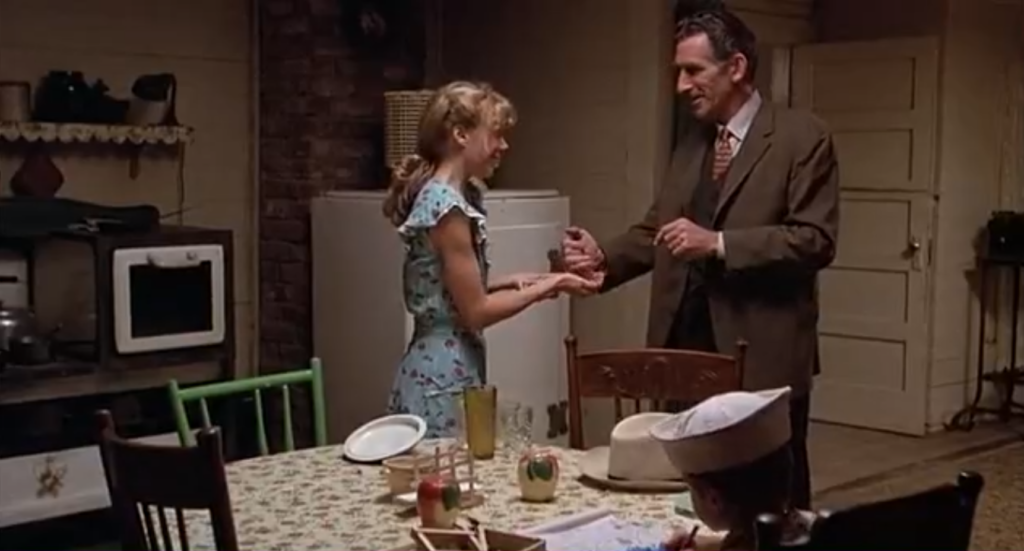|

Synopsis:
During World War II, the divorced mother (Sissy Spacek) of two young boys (Henry Thomas and Carey Hollis, Jr.) takes up with a sailor (Eric Roberts), which arouses the envy of two local hoodlums (William Sanderson and Tracey Walter).
|
|
Genres, Themes, Actors, and Directors:
- Romance
- Single Mothers
- Sissy Spacek Films
- Small Town America
- World War Two
Response to Peary’s Review:
Peary is an enormous fan of Sissy Spacek’s performance as Nita Longley in this character-driven romantic fable; he refers to Nita as “her most mature, capable, and, I think, appealing character”, and gives Spacek an Alternate Oscar as Best Actress of the year. He notes that Spacek is finally allowed to “create a character through nuance rather than speech” and that she “reveals exciting parts of her that she’d always kept hidden”. Spacek’s performance here is indeed lovely — as is that of Eric Roberts in one of his better supporting roles (Peary notes that he gives a “splendid performance”, and correctly asserts in his Alternate Oscars book that he deserved a Supporting Actor nomination). Their brief romance together is truly touching, and “tastefully handled”. Peary also rightly points out that “you’ll feel transported back through time” by the authenticity of the “small Texas town” (thanks to the “impeccable” sets and photography), and that you’ll doubtless enjoy the “smart dialogue” and the wonderful “interaction of characters, including adults and children”.
Unfortunately, however, Raggedy Man — which starts out as the “most lyrical and romantic of films” — is irredeemably marred by its “horror-movie ending”, a deeply “regrettable sequence” which, despite some heavy-handed foreshadowing, seems to come out of nowhere, and seriously disrupts the timbre of prior events. While we can’t help but guess that Sanderson and Walter (giving appropriately creepy performances) will exact revenge for Spacek’s gentle rejection of their advances, the way in which this plays out seems more fitting for Spacek’s breakthrough movie Carrie; and the allegorical importance of the film’s title character (Sam Shepard in facial makeup) comes too late to feel authentic. Film fanatics are sure to feel torn in their feelings about Raggedy Man, which would likely be must-see if it weren’t for the film’s unfortunate denouement.
Redeeming Qualities and Moments:
- Sissy Spacek as Nita

- Eric Roberts as Teddy

- Fine attention to period detail

Must See?
No, but it’s recommended for the strong central performances and authentic recreation of 1940s Texas.
Links:
|




One thought on “Raggedy Man (1981)”
I’m going to go ahead and must this one anyway – even though I agree about the conclusion being harsh. It’s not that it comes out of nowhere (the film is certainly set up to go in that direction) but the tone does change considerably (“aided” by heightened, ‘Hollywood’ music by Jerry Goldsmith). Thinking about it…it may remind viewers of the climax of ‘To Kill a Mockingbird’, only a bit scarier. Ultimately it does, I think, kind of work – and is handled as carefully as possible, all things considered.
As ffs may know, Spacek’s production designer/art director husband Jack Fisk directed – and he, no doubt, had his own significant input on the impressive details. It’s not a particularly expensive-looking film; it looks like a smaller budget used very wisely. Everything looks remarkably right. As well, Fisk shows impressive ability in directing children (the two young boys are quite good). Generally speaking, the direction is very sensitive and the story is generally told in quite a gentle manner.
So much works well in the screenplay by William Wittliff and it has a distinctly natural feel to it. First and foremost is the handling of Spacek’s character as a divorced woman and the stigma that carried in the ’40s. It’s pretty clear Spacek is the talk of the gossipy town, even though that is not exactly in our face.
I especially like the scene of the fight in the bar. It’s refreshing to see bystanders come to Roberts’ aid – as opposed to the way on-lookers remain as such in other films, when a main character has to single-handedly take on a nasty element in town.
It seems a smart choice to have Roberts disappear from the story when he does (without being an unlikely savior at the last minute), though it’s also clear he doesn’t really disappear at all.
Finally, though, this is Spacek’s film and it should be seen for that reason alone. Though “caught”, her character is quite strong – and it’s a treat seeing her slowly realize just how strong she is.
Fave scene: Spacek dancing to The Andrews Sisters singing ‘Rum and Coca-Cola’, with her broom as dancing partner.